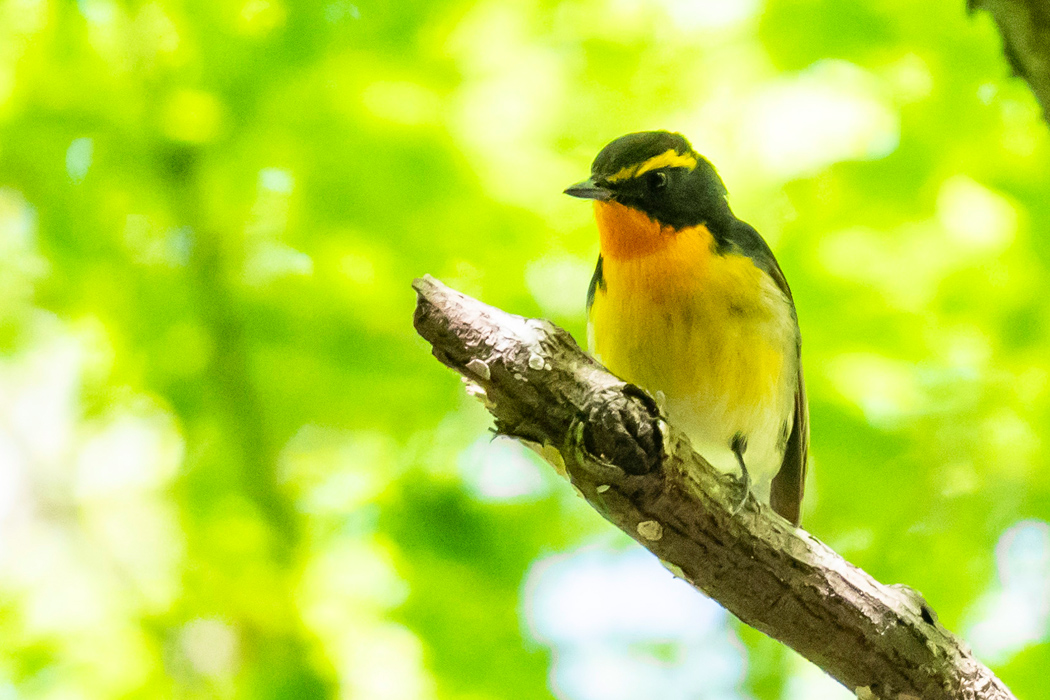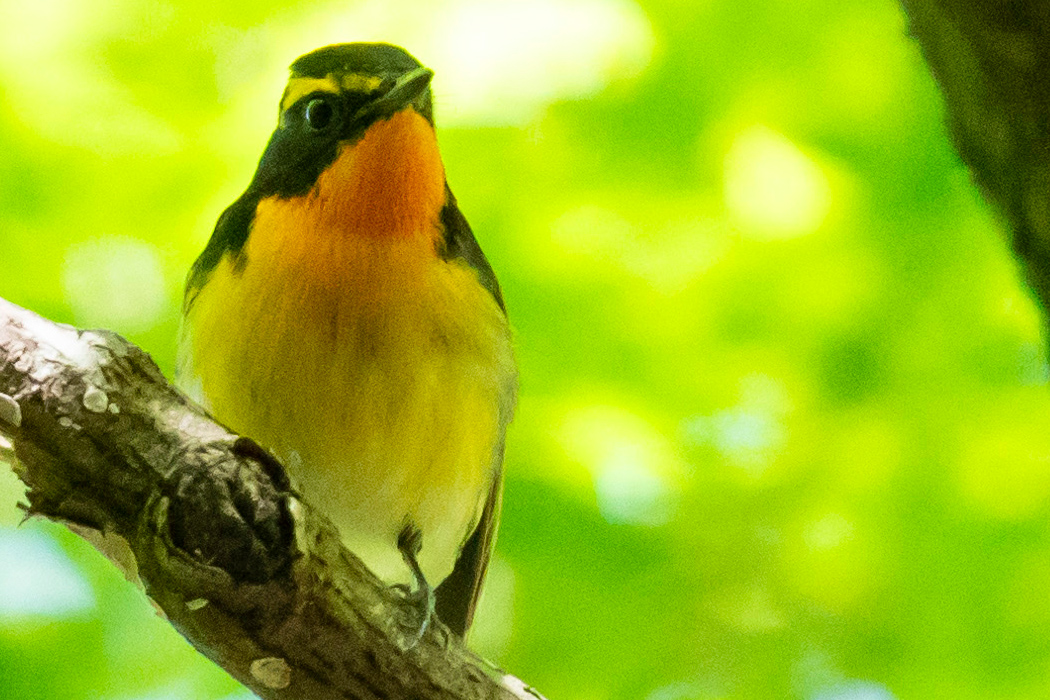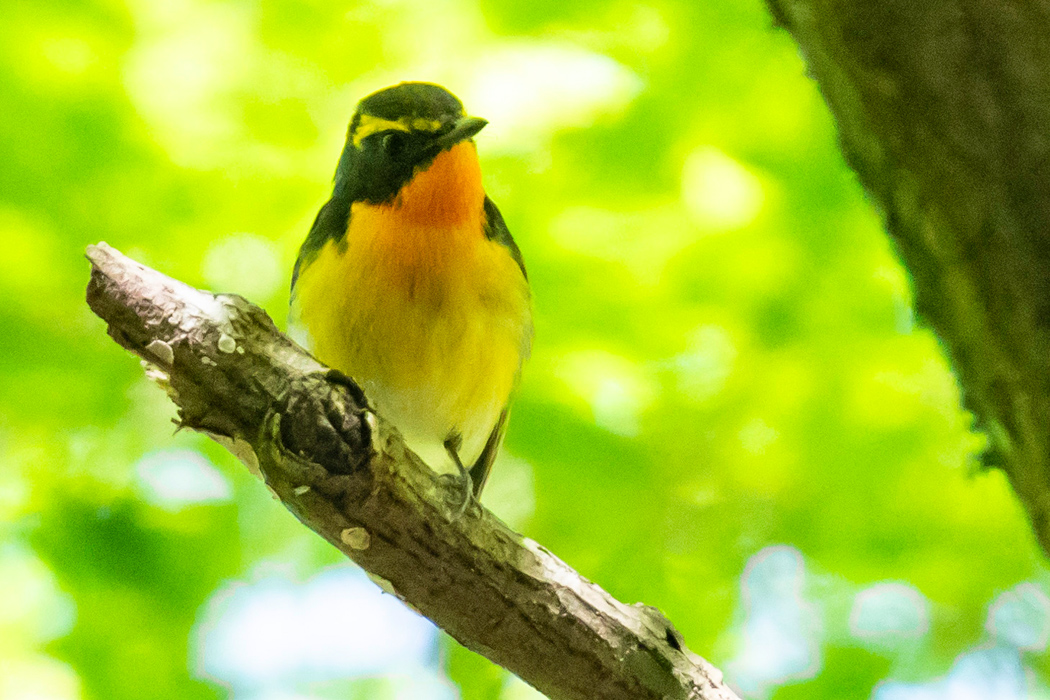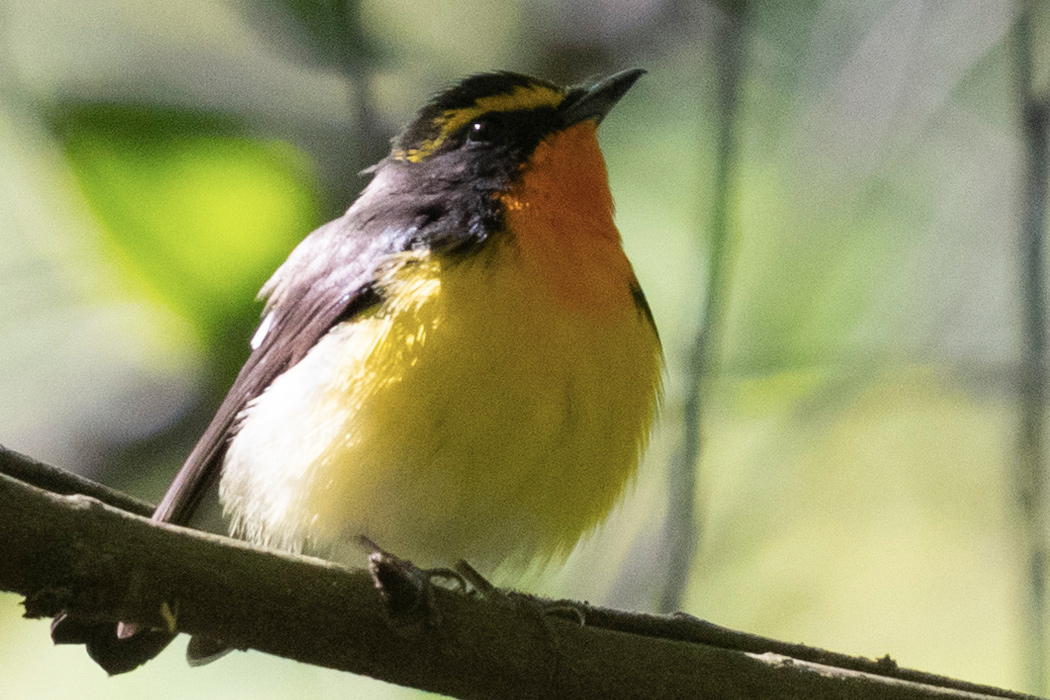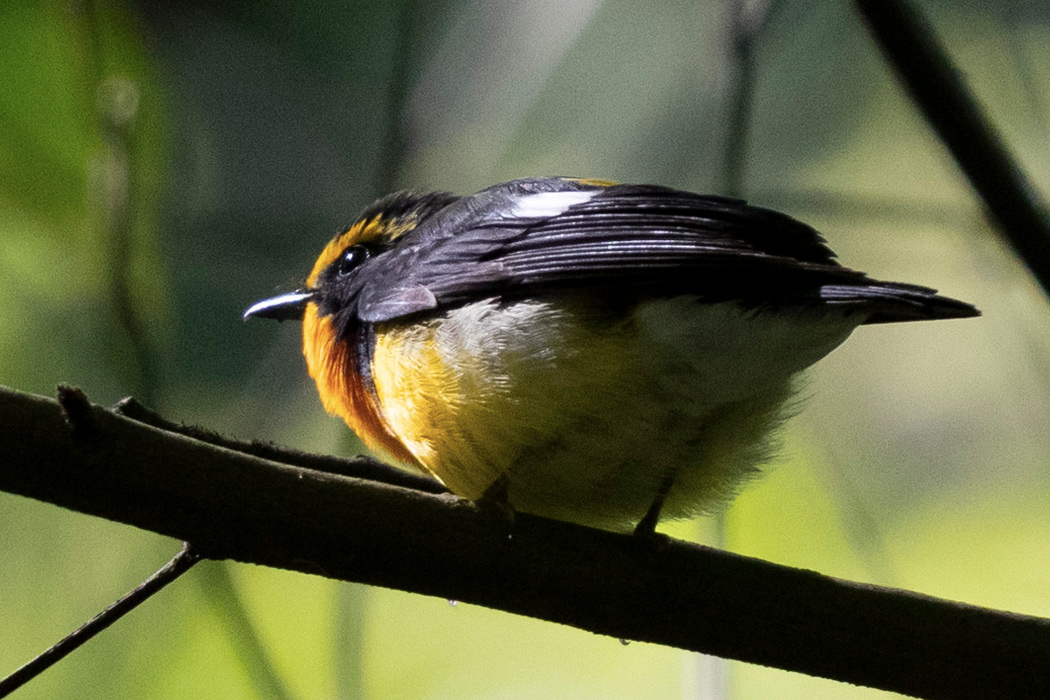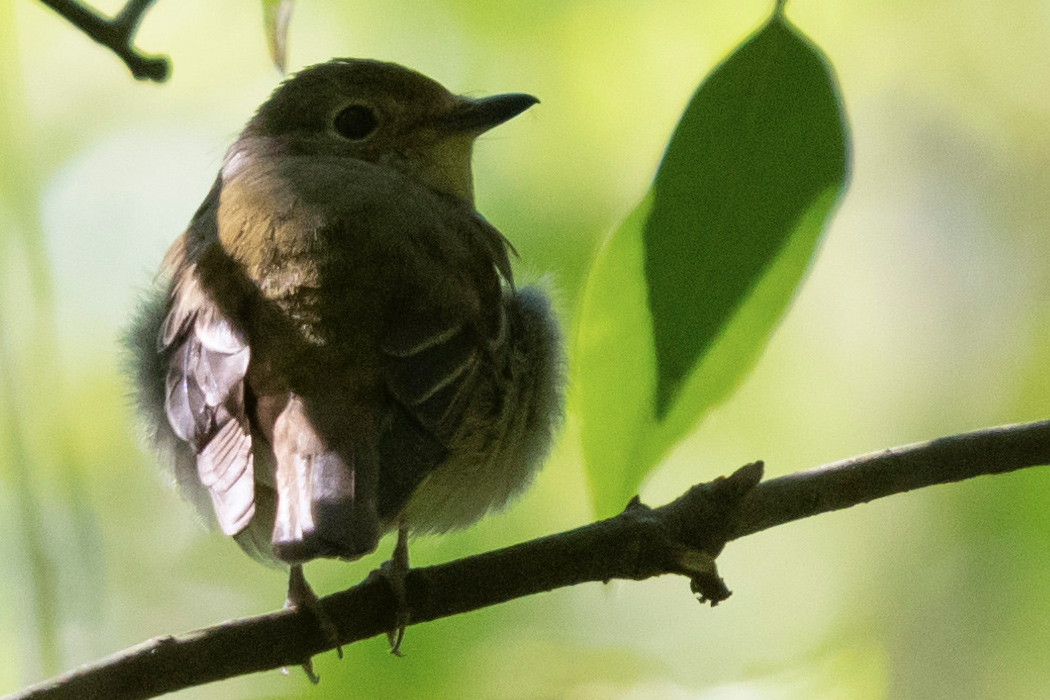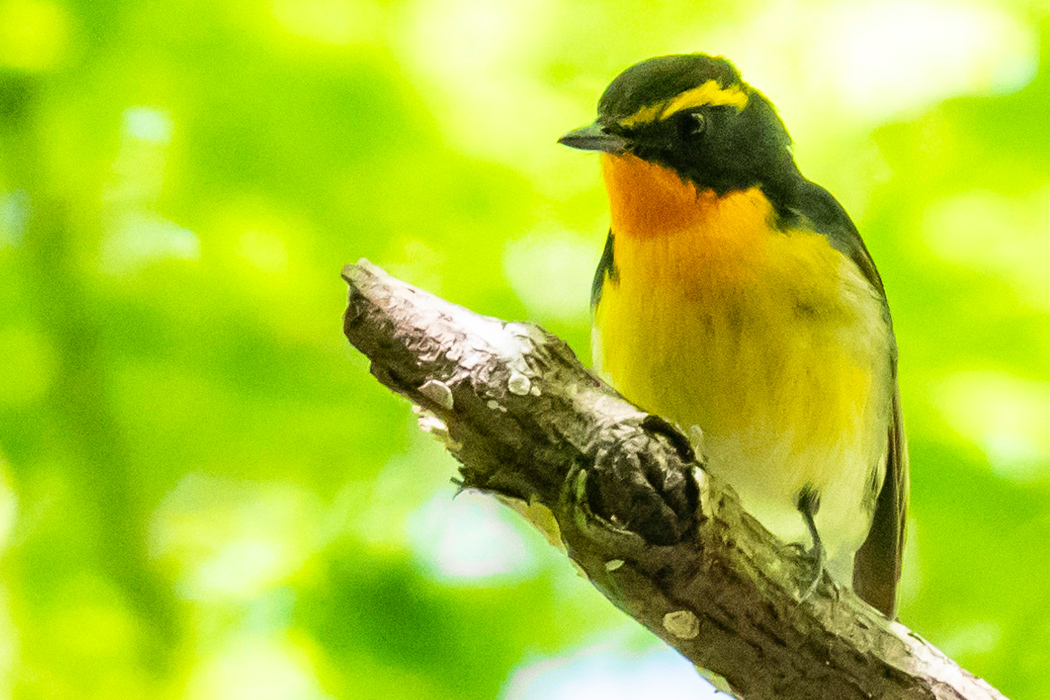
Narcissus Flycatcher
When it gets warmer, it comes to the bright forest.
| Scientific name | Ficedula narcissina |
| English name | Narcissus Flycatcher |
| Japanese name | 黄鶲 |
| Classification | Aves |
| Classification details | Passeriformes Muscicapidae |
| Full length | 14cm |
| Distribution | Distributed throughout Japan as a summer bird. |
Characteristics
A summer bird characterized by the dark yellow color of males. Yellow above the eyes and from the throat to the belly, and black from the head to the back. It has white stripes on the sides of its wings. Females have an olive-colored body.
During the breeding season, they make beautiful calls such as "picchu picchu" and "churichuri." It seems that the variation of the song differs depending on the region, and it sometimes imitates the song of other birds.
Listen
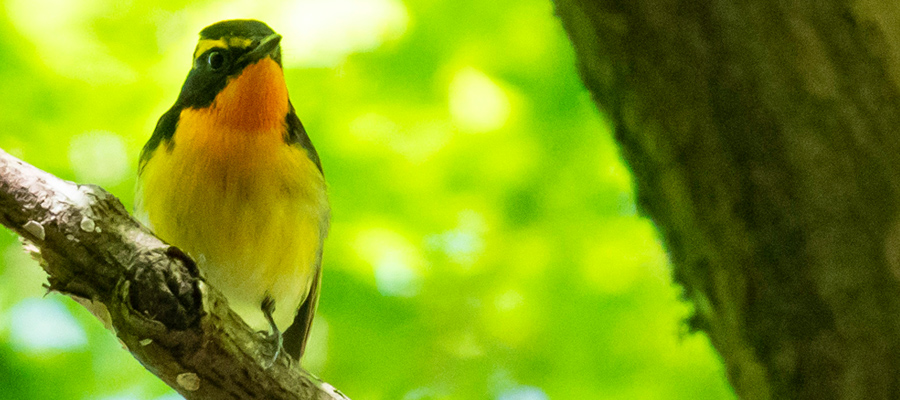
Ecology
Mainly inhabits deciduous broad-leaved forests in mountainous areas. It feeds on arthropods such as insects and spiders in the forest. They can also catch prey in the air.
It is a summer bird that flies from China in the spring and travels to Southeast Asia in the winter to spend the winter.
Habitat
Found in the woods near the Hikagezawa Campsite in Takao-cho, Hachioji City. The dull-colored female came first, and the male flew up the branch shortly after. The male was singing lively.
Around Uratakao, I was able to see summer birds such as blue-and-white blue-and-white birds.
Video
The video
of the Narcissus Flycatcher.
The male was whispering.
Pictures
Introducing a picture of Narcissus Flycatcher.

Picture book
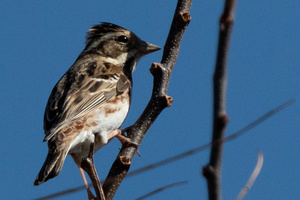
Rustic Bunting
Characterized by bristling feathers on the top of the head.......ead more.

Chinese Grosbeak
Black head behind the eyes.......ead more.
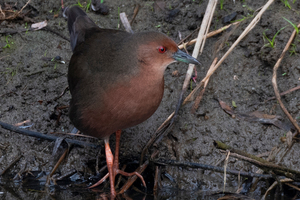
Ruddy crake
Scarlet crake......ead more.

Raccoon butterflyfish
a black and white band running around the eye......ead more.

Japanese spine-less cuttlefish
From the spread of discharge that makes your buttocks look like it's burning.......ead more.
